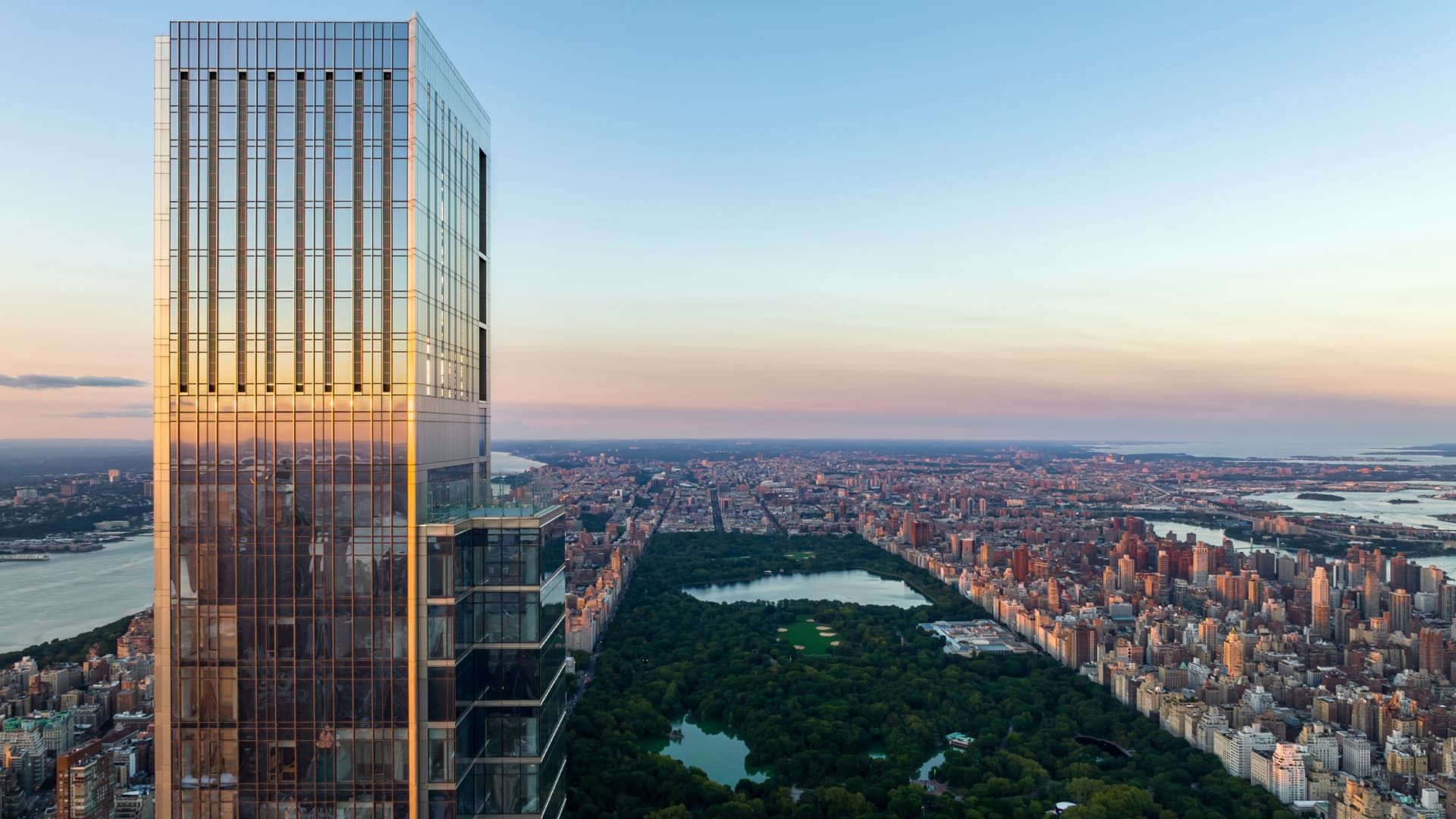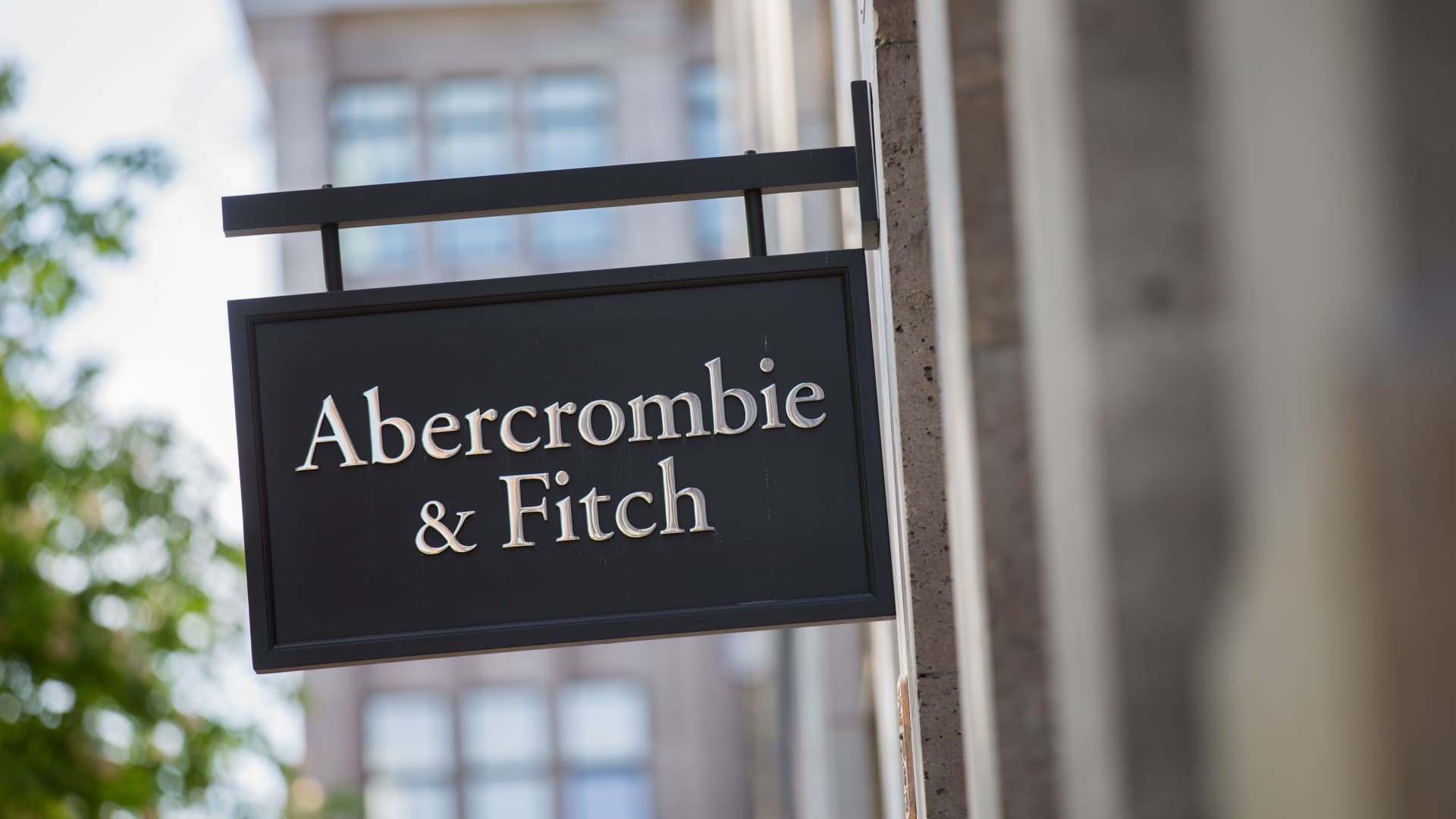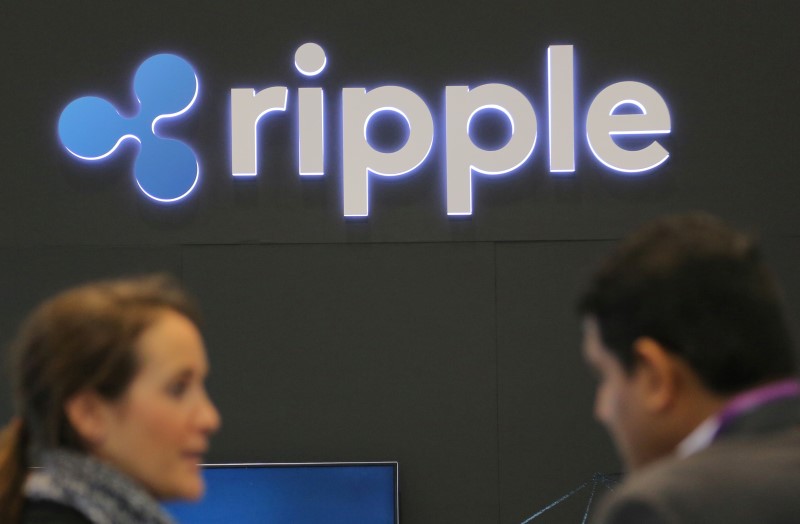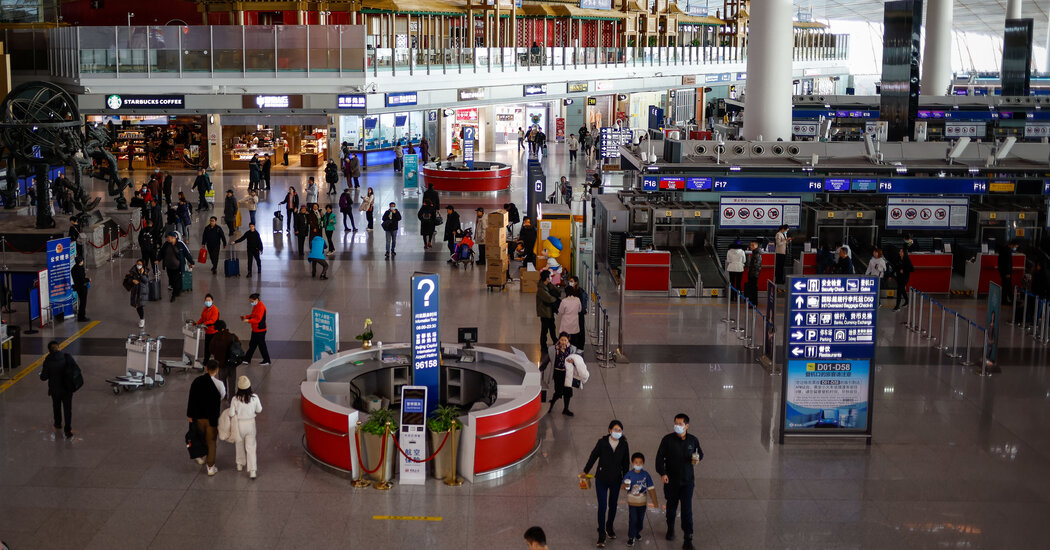A view of the Central Park Tower at 217 West 57th St. in New York City.
Source: Cody Boone, SERHANT Studios
A version of this article first appeared on CNBC's Inside Wealth with Robert Frank, a weekly guide for high-net-worth investors and consumers. Register to receive future issues directly to your inbox.
Sales of $100 million homes are on track to double this year as surging financial markets and hopes for rate cuts fuel a recovery in the ultra-luxury housing market, according to new reports.
As of July 15, six homes in the U.S. had sold for more than $100 million, according to data from Miller Samuel and Douglas Elliman. If the sales pace continues, it would more than double last year’s total and likely eclipse the record of nine homes sold for more than $100 million in 2021.
The nine-figure club is admittedly a small group, but sales of homes priced at $50 million, $20 million and even $10 million are a sign of a strong recovery for the ultra-luxury housing market after its decline in 2023. The recovery marks a stark contrast to the national housing market, which is still feeling the pressure of high mortgage rates and a lack of supply.
“It's a substantial increase in the pace of sales, something we're not seeing at all in the broader housing market,” said Jonathan Miller, chief executive of Miller Samuel, the appraisal and research firm.
In the past month, Manhattan has seen two blockbuster transactions. A penthouse in the Central Park Tower, the world's tallest residential building, sold for $115 million to an unknown buyer. And the penthouse at the Aman New York sold for $135 million to Russian billionaire Vladislav Doronin, who founded the development company that built the building, effectively buying it from his own company.
Palm Beach, Florida's only private island, Tarpon Island, sold for $150 million in May, and Oakley founder James Jannard just sold his Malibu mansion for $210 million, making it the most expensive home ever sold in California.
Tarpon Isle, a private island in Palm Beach, Florida, is for sale for $218 million.
CNBC
Even San Francisco is getting in on the luxury boom. Laurene Powell Jobs, the billionaire widow of Steve Jobs, just bought the most expensive home ever sold in San Francisco. She paid $70 million for a 15,000-square-foot mansion in Pacific Heights, wedged between her neighbor Larry Ellison on one side and Apple design guru Jony Ive on the other.
There are also signs of strength at the lower end of the luxury scale. According to Redfin, sales of homes priced at $5 million or more through June topped 4,000, up 13% compared with the same period last year.
“It was a much stronger and more robust start to the year than anyone expected,” said Mike Golden, co-founder of Chicago-based @properties and Christie's International Real Estate.
According to Christie's Mid-Year 2024 Luxury Outlook report, high-end markets across the country are experiencing strong demand. In Naples, Florida, sales of homes over $10 million rose 14% in the first quarter, according to the report. In Montana, sales over $4 million were up 50% through early May, according to PureWest Christie's International Real Estate.
The rise of artificial intelligence has sparked a resurgence in sales in the San Francisco Bay Area.
“My biggest surprise so far in 2024 has been the number of qualified buyers who have the ability and willingness to pay premium prices for ultra-elite properties, which speaks to the tremendous liquidity at the highest ends of the market,” said Nathalie de Saint Andrieu, a broker in the Bay Area.
The divergent trajectories of the ultra-luxury market and the broader real estate market highlight the vastly different forces driving the high-end economy compared with the rest of the country. The national housing market rises and falls with mortgage rates, with affordability at historic lows and many Americans stuck in their homes with low-rate mortgages. The ultra-wealthy can use cash to buy their homes, especially when rates are high. In Manhattan, two-thirds of transactions this spring were done in cash, and the share was even higher in the luxury segment, according to Miller Samuel.
Moreover, the confidence (and money) of wealthy home buyers is largely due to the stock market, which continues to break records this summer. With trillions of dollars in wealth generated by stocks, the ultra-rich are now looking to buy.
“The ultra-luxury segment is almost entirely disconnected from the typical real estate market,” Miller said. “It's a global rather than a local market and is more of a barometer of the health of global financial markets.”
The rise in inheritances from the $80 trillion Great Wealth Transfer is also helping sales. Daniel de la Vega, CEO of One Commercial Real Estate and president of One Sotheby's International Realty, said he's seeing a big increase in South Florida from millennial and Gen Z buyers who are purchasing condos with family trusts.
“They want new construction and some of them come and buy sight unseen,” he said. “They especially like branded residences.”
De la Vega said another trend driving ultra-luxury sales is the demand for ever-larger homes. After COVID-19, he said, wealthy buyers want all the amenities of their favorite lifestyle in their homes, from gyms and spas to offices, entertainment spaces and display spaces for their art and car collections.
The price per square foot of luxury condos in South Florida has increased by 33% this year, to $3,451. Prices per square foot of single-family homes have increased by 11%, to $2,485.
“Before, the price per square foot went down as the property got bigger,” de la Vega said. “Now it's the opposite. We've never seen numbers like this. It's astronomical.”
Typically, the high-end real estate market pauses ahead of presidential elections as buyers wait for more certainty. So far, the strength of financial markets outweighs any election concerns. However, that is far from a done deal in the second half of the year.
“At least from the actions we're seeing this year, the election doesn't seem to be having a huge impact on the super luxury landscape,” Miller said.
Register to receive future issues of Inside Wealth in your inbox.









